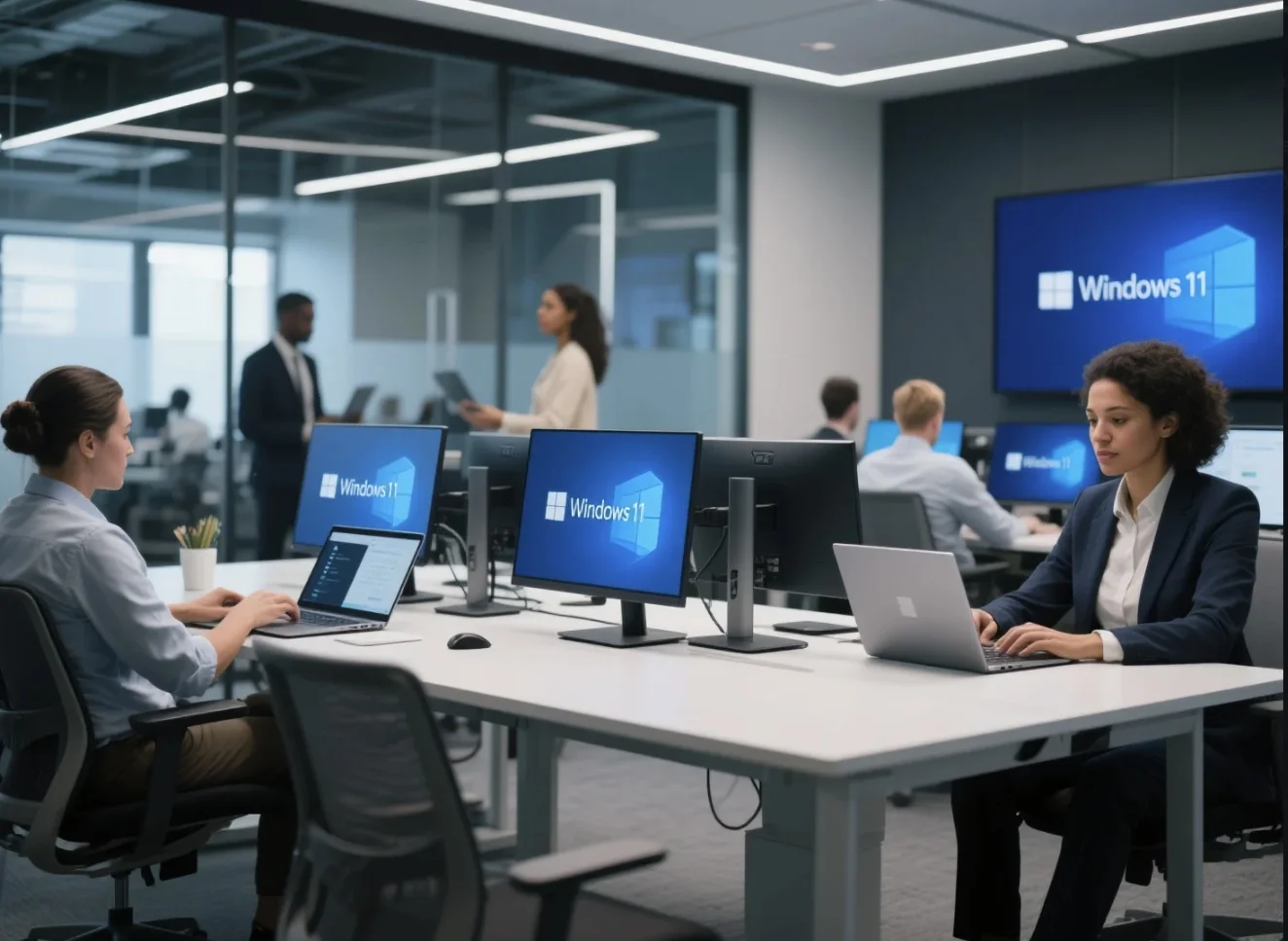Introducción
As technology continues to evolve, businesses must adapt to remain competitive, efficient, and secure. With Microsoft’s recent emphasis on Windows 11, many enterprises worldwide are actively planning or executing their migration from Windows 10 to Windows 11 in 2025. This shift is driven by several strategic benefits offered by the new operating system, including enhanced security, productivity tools, and modern management capabilities.
In this article, we’ll explore the key reasons why enterprises are making this move and how your organization can benefit by upgrading to Windows 11.
1. End of Windows 10 Support is Near
Microsoft has officially announced that Windows 10 support will end on October 14, 2025. After this date, there will be no security updates, patches, or technical support for any edition of Windows 10.
For enterprises, running unsupported systems can expose critical business data to vulnerabilities and compliance risks.
Recommended Upgrade Options:
2. Enhanced Security Architecture
One of the standout advantages of Windows 11 is its modern security framework, designed for today’s hybrid work environment.
It integrates features like:
- Secure Boot
- TPM 2.0 (Trusted Platform Module)
- Windows Hello for Business
- BitLocker Device Encryption
These features collectively help enterprises protect against malware, ransomware, and data breaches, ensuring regulatory compliance in sectors like finance, healthcare, and education.
3. Productivity Improvements with New Features
Windows 11 comes equipped with productivity-focused tools that streamline workflows:
- Snap Layouts and Snap Groups for easy multitasking
- A revamped Microsoft Teams integration built directly into the taskbar
- A cleaner, modern Start Menu and Taskbar
These tools enhance collaboration and efficiency in remote and hybrid work models, which have become the new normal in 2025.
4. Better Compatibility with Modern Hardware
Windows 11 is optimized to work seamlessly with the latest processors from Intel, AMD, and Qualcomm. It enhances system performance, boot times, and battery efficiency, ensuring your enterprise hardware investment is future-proofed.
This also aligns with Microsoft’s minimum hardware requirements, which means newer security and productivity features can operate without compromises.
5. Enterprise-Grade Management and Deployment Tools
IT administrators benefit from advanced management tools in Windows 11:
- Windows Autopilot for simplified device setup
- Microsoft Endpoint Manager for centralized device management
- Azure Active Directory integration for secure access control
These tools reduce deployment time, streamline updates, and enhance endpoint security across enterprise networks.
6. Seamless Integration with Microsoft 365 and Cloud Services
For businesses heavily reliant on Microsoft 365 apps like Word, Excel, Outlook, and Teams, Windows 11 offers seamless integration. Cloud-based workflows, OneDrive backups, and Teams collaboration are smoother and more reliable on the latest OS.
Consider complementing your upgrade with:
7. Better Support for AI-Powered and Future Technologies
Windows 11 was built with AI-powered and machine-learning applications in mind. From smarter resource allocation to AI-assisted workflows, it supports emerging technologies better than its predecessor.
As AI integration becomes crucial for business growth in 2025, adopting Windows 11 positions enterprises for long-term success.
Conclusión
The shift from Windows 10 to Windows 11 isn’t just a forced migration due to end-of-support deadlines — it’s a strategic move for enterprises looking to enhance security, productivity, and operational efficiency in a rapidly changing digital landscape.
If your business hasn’t yet planned its migration, now is the time to start.
Llamado a la acción
Ready to upgrade your enterprise systems?
Explore our Windows 11 options and get an exclusive business quote today:
Need advice or a bulk purchase plan? Contáctenos — our specialists are here to help.







 No products in the cart.
No products in the cart.